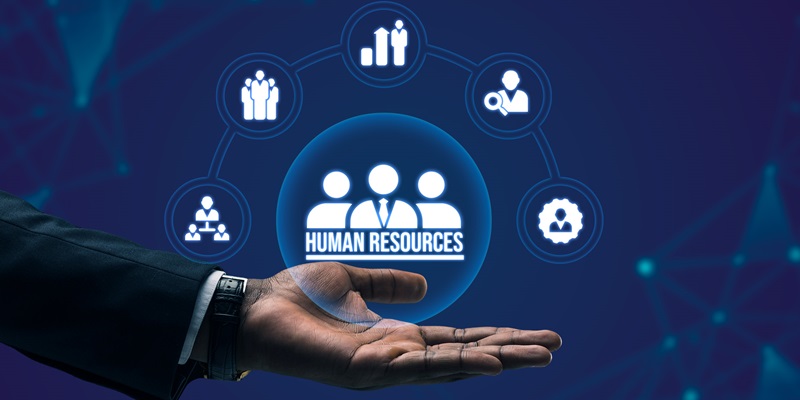HR software has become an essential tool in the arsenal of modern businesses, transforming the way human resources duties are managed. These sophisticated systems offer a plethora of functionalities that go beyond administrative tasks. They are engineered to enhance the efficiency of business operations and provide an unparalleled level of data security for the sensitive information that HR departments routinely handle.
More than just automating tasks, HR software enables companies to adopt a more strategic approach to managing their workforce. Real-time analytics and data-driven insights empower HR professionals to make informed decisions that align with the company’s broader objectives. With the integration of these systems, businesses can foster a more engaged workforce, as employees benefit from easier access to HR services and clearer communication channels.
The ripple effects of utilizing HR software are felt throughout the organization, leading to a synergistic workplace where productivity and employee satisfaction can flourish. As the landscape of work continues to evolve, the role of HR software in promoting a dynamic and responsive work environment becomes ever more indispensable.
The Revolution of HR Workflows
The integration of Human Resources Information Systems (HRIS) has dramatically altered the framework within which HR tasks are conducted. Legacy methods that involved a substantial amount of paperwork and manual data entry have given way to a more sophisticated, streamlined approach. HR responsibilities that span from recruitment and onboarding to payroll and compliance have historically been fraught with inefficiency and the potential for error when handled manually.
By transitioning to digitized platforms, companies are witnessing a remarkable increase in productivity. HR software not only automates routine tasks but also orchestrates a seamless flow of information across different HR functions. As such, HR professionals are now equipped to devote their time and resources to more strategic imperatives, leveraging technology to dynamically fortify the workforce.
Centralizing Employee Data in the HR Ecosystem
Centralized data management is pivotal for the effective functioning of HR departments. With employee data ranging from personal details to performance metrics, ensuring accessible and reliable data storage is a challenge that HR software addresses proficiently. Data centralization is integral to processes such as payroll management and regulatory compliance; inaccuracies or delays in these areas can lead to significant employee dissatisfaction or even legal repercussions.
HR software acts as the lynchpin of employee data management, offering a robust and centralized solution. This single system enhances the accuracy and accessibility of data, providing crucial information at the fingertips of those who need it. In this respect, the software does not merely serve as a repository but also as an enabler of decisive HR activities that impact the entire organization.
Security and Compliance in the HR Software Era
HR systems manage a plethora of sensitive data, which makes security an absolute imperative. Companies are obliged to maintain the confidentiality and integrity of employee data—and this is where HR software proves indispensable. These systems are designed with security at the forefront, equipped to counteract potential cyber threats and safeguard personal and financial information alike.
HR software possesses embedded features to ensure adherence to the latest compliance standards and data protection protocols. From secure user authentication to encrypted databases, the software shields the integrity of the data, thus fulfilling the dual role of guarding against security threats and maintaining compliance required by various legislative frameworks.
The Analytical Edge: People Analytics in HR Software
Modern HR software now harnesses analytics to fundamentally reshape workforce management. Known as people analytics, this data-driven approach taps into the depths of HR data to reveal trends related to employee behavior, efficiency, and loyalty. These insights are pivotal for forging a stronger, more agile workforce.
Through advanced analytics, HR experts are empowered to make decisions that are informed by solid evidence. They can predict future trends, pinpoint areas for improvement, and gain a richer understanding of the organization’s human capital. Analytics in HR not only aids in better workforce planning but also influences the financial health of the company by elevating the effectiveness of its people. This revolution in HR practices through analytics promises a smarter, more proactive approach in managing the workforce of the future.
Streamlining Administrative Duties and Strategic Planning
The adoption of HR software has a profound impact on reducing administrative overhead, liberating HR professionals to pursue more strategic goals. By automating the routine tasks that once consumed significant time and resources, HR teams can now focus on initiatives that enhance organizational performance and employee satisfaction in profound ways.
Streamlined onboarding, efficacious talent management, and maintenance of audit readiness are among the many advantages of HR software. The reduction of administrative burden translates into agile process management, allowing HR to pivot from transactional roles to transformational ones that fully leverage human capital.
Harnessing HR Software for Enhanced Employee Engagement
HR software transcends operational utility, seeding a thriving workplace culture. It alleviates the HR burden of mundane tasks, freeing up space to focus on pivotal aspects such as employee engagement and retention—a definite boost to business prosperity. An engaged workforce is a cornerstone of business success, and HR tools act as a lever in this respect.
The automation capabilities of HR systems allow for tailor-made employee experiences, real-time satisfaction tracking, and an agile response to the pulses within the workforce. This technological support doesn’t just lift employee morale but also amplifies productivity. By fostering an outstanding work atmosphere, HR software underpins a rise in employee contentment—a key driver of a company’s success. These advantages signify a harmonious synergy between technology and human resources, leading to a resilient, committed, and contented workforce.

